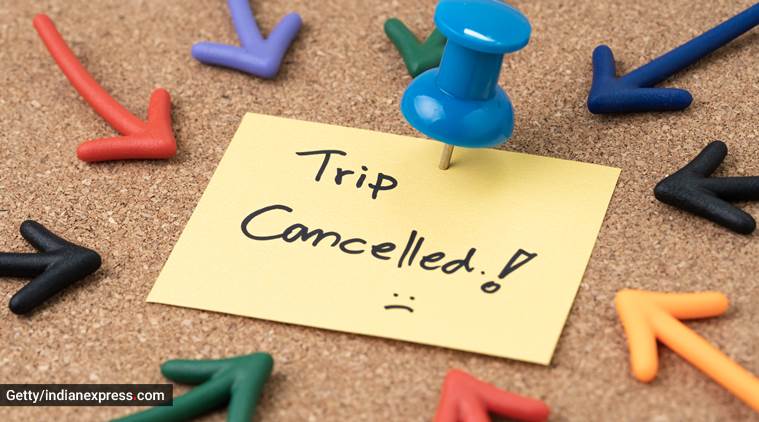 For anyone imagining what life is going to be like whenever the situation passes, one post Pandemic positive is that no one’s rushing off to stand in lines at the gates of the wonders of the world. (Source: Getty/Thinkstock)
For anyone imagining what life is going to be like whenever the situation passes, one post Pandemic positive is that no one’s rushing off to stand in lines at the gates of the wonders of the world. (Source: Getty/Thinkstock)
The last thing on anyone’s mind right now is travel, but if this were an ordinary year, many of us would be planning a vacation right now. There would have been animated conversations choosing museums and historic sights to see. That dreaded term “bucket lists” would have surfaced since the modern traveller is weighed down by the trend of ticking off exotic destinations one by one, determinedly. In the last decade, travel has been approached like it’s a race against time. For anyone imagining what life is going to be like whenever the situation passes, one post Pandemic positive is that no one’s rushing off to stand in lines at the gates of the wonders of the world.
The need for social distancing completely obliterates the 21st-century concept of travel, whether it’s queueing up for the Mona Lisa, or being among the hordes crouching to enter the Pyramids at Giza. It is frightening to consider what a serious dent this will make to the economies of so many countries like France and Italy— Venice and Paris survive on thronging tourists paying to view their famed monuments, and UNESCO protected sites. However, in the long run, it’s probably a good thing that people won’t be able to hop on and off flights in a mad frenzy. One can only wonder how it got to this point but a visit to any tourism shrine makes an observer feel that the general attitude of travellers is to dispense with a place summarily, before quickly moving on to the next. Not only is this constant movement very environmentally unfriendly, it’s also a very superficial way to experience something new. To truly see and absorb, one can’t perpetually be in motion.
I don’t know anyone who hasn’t fallen for the lure of viewing first hand, the acknowledged and stirring creations of art—only to discover (deflatingly) you can see them much more clearly on YouTube. After an entirely underwhelming experience getting pushed around the Louvre some years ago, I vowed to myself that I was never wasting time entering a famous museum again. But again, two years ago, friends looked at me incredulously when I declined to go inside The Hermitage, saying I would prefer to wander the streets of St Petersburg instead. Foolishly I gave into pressure and ended up getting herded around like a sheep at the Tsar’s glittering palace yet again, I swear finally, for the last time. The crowds were so huge, we had to walk single file and stick to our lanes. The stern tour guide looked like he’d ship us out to a labour camp in Siberia if we asked a question so we listened to legends of those fantastic treasures on headphones, again, a terribly deflating way to acquaint oneself with a fascinating history.
A lot of what passes off for travel is really just standing around a lot, waiting, and killing time, hopefully with ice cream. The rare, pleasant after effect of this pandemic is going to be that people are going to find value in places closer to where they live; which they haven’t explored (having been wholly caught up in the mind-numbing pursuit of fabulous, over sold destinations half way across the world). Road trips to hill stations are going to make a comeback. Because being in your own car carries with it, at least an illusion of control. International travel is completely out for so many reasons, just one of which is that when you’re abroad, every meal almost, is at a restaurant. With crowds, eateries and supermarkets deemed a health risk, there’s even less motivation to go anywhere. Besides, with so much uncertainty of lockdowns and re-openings and a legitimate fear of getting quarantined randomly, people are too spooked to go anywhere close to an airline.
Not only has the coronavirus brought the travel industry to a grinding halt, but getting over the fear psychosis it has created may also be a huge impediment to recovery. It is worth noting that the urge to travel is also fueled by our peers’ experiences. You want to see those Instagram worthy architectural marvels everyone’s always posting about. But as long as it’s the travellers who are sent into isolation to rule out the possibility of being asymptomatic carriers — and while people who have stayed in are seen as those sustaining safety — the future of travel seems godawfully dismal.